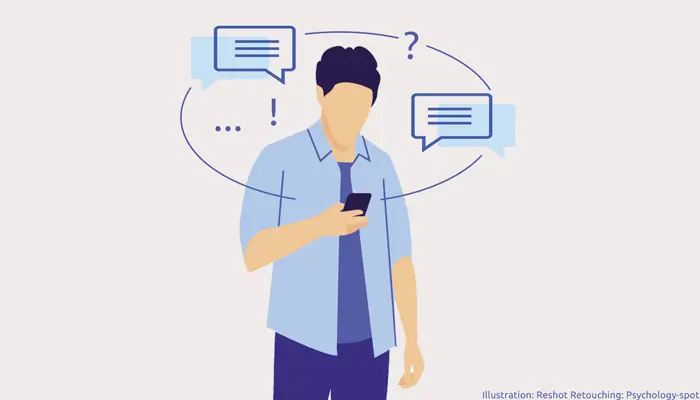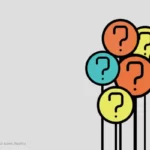
Just a few weeks ago, a young woman posted a video on Facebook that showed a lady who rebuked her with a defiant attitude because her baby was crying on the plane. Her goal was to be seen by her family and friends, but the video went viral and made headlines in the media around the world, so the woman was fired from her job of $ 95,000 a year because the company considered her behavior to be “unacceptable” and did not give a good image. The young woman apologized because she did not believe that the video could have had such a big impact, but the damage was already done.
It is not the first case, and it will not be the last, in which the barrier between the private and the public is blurred, or rather disappears completely, in social networks. In fact, right now we can enter into networks like Facebook and browse the profiles of people we met years ago or people we’ve just met. We can see their photos, meet their children, see their homes, know where they spent their last vacations, what is their favorite restaurant and even witness personal discussions that previously would have remained between the four walls of theit home…
How is it possible? The explanation to some cases could be in the psychological phenomenon of the “Privacy Fatigue”. In fact, if you are worried about divulging too much information about yourself but you do not know very well how to draw that line between public and private, it is likely that you will also suffer this fatigue, which make you open the floodgates and expose your private life almost completely before the eyes of the curious.
What is privacy fatigue?
A group of psychologists from the National Institute of Science and Technology of Ulsan dedicated themselves to analyze how people deal with the barrier between public and private. They realized that those who are very concerned about the threats to their security and privacy online, often suffer what they called “Privacy Fatigue”.
They defined it as “a feeling of tiredness related to privacy, in which the person believes that there is no effective way to manage his personal information on the Internet.”
These psychologists also noted that the degree of privacy fatigue varies from one person to another but, in a general sense, they believe that it affects all of us and that the need to continually draw that dividing line between private and personal information to protect our privacy, is wearing us out more and more. The problem is that when we are victims of the privacy fatigue, a boomerang effect is produced that makes us lower the defenses.
The symptoms of Privacy Fatigue
These psychologists explain that the privacy fatigue generates the same symptoms that cause other forms of fatigue. In practice, there comes a point where we feel that we have to satisfy so many demands and take into account so many details that comes the exhaustion.
The perpetual exhaustion takes us to the next level, in which we experience frustration, despair and even disappointment. At a certain point, we can begin to feel a loss of effectiveness, we feel that nothing we do will be enough, until we fall into learned helplessness.
In the case of the privacy fatigue, we simply feel that we cannot keep up to date because the information flows too quickly and changes are constant. In this regard, the philosopher Zygmunt Bauman said that information highways that promise to take travelers to their destinations faster and with less effort than expected, can become very overwhelming.
The paradox of privacy
These researchers discovered that people who are really concerned about their privacy but are not fatigued, avoid divulging personal information, but those who are already tired simply do not have the will to control the process. In other words, the dykes are broken and the line between the intimate and the public disappears.
That fatigue causes us to click on the “Accept” button without thinking about anything else. The emotional exhaustion causes us to forget the need to protect our privacy, to be more careless and to expose ourselves more in the public arena.
This gives rise to the “paradox of privacy”: people continue to reveal personal details despite being concerned about their safety and privacy. Of course, the causes are not only in that emotional fatigue but are much deeper, rooting in the new challenge posed by social networks to achieve a balance between individual self-affirmation and community building.
“Privacy is the area meant to be one’s own domain, the territory of one’s undivided sovereignty, inside which one has the comprehensive and indivisible power to decide ‘what and who I am'”, wrote Zygmunt Bauman.
However, social networks have given a twist to that concept by making privacy to change from a place of empowerment to a place of incarceration where the owner of the private space does not have an avid public and, as such, feels that it is not valuable enough. Individual identity is built today more than ever through the community identity, so it is increasingly difficult to separate the private from the public.
Privacy as intimate glue
We must not forget that privacy does not only mean keeping out the others, the strangers and those who can harm us, but it also serves to link and protect the strongest inter-human links. When we entrust our secrets to very select people, those that we hide from others, we place them in a “very special” category and we weave deep networks of friendship.
The action of sharing our privacy leaves us vulnerable, we are naked before the others, so it is an act that historically has helped us design and retain our best friends. If we share everything on social networks, we are left without that “intimate glue” that allows us to establish special relationships.
In fact, the psychiatrist Thomas Szasz said that “The current crisis of privacy is inextricably linked to the weakening and decadence of all inter-human links.”
Therefore, it is worth reconsidering that dividing line, taking care not to fall into privacy fatigue.
Sources:
Choi, H., Park, J., & Jung, Y. (2018). The role of privacy fatigue in online privacy behavior. Computers in Human Behavior, 81: 42-51.
Bauman, Z. (2011) Daños colaterales. Desigualdades sociales en la era global. Madrid: Fondo de Cultura Económica de España.



